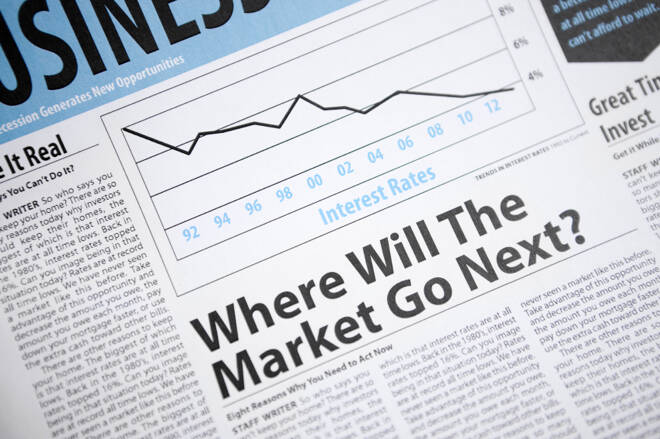Advertisement
Advertisement
Are We Going to See Another Financial Crisis in the Coming Years?
By:
There are too many variables to accurately predict whether a crash will happen. The world has been slow to recover since 2008, but progress is being made, and the modern world has woken up to the dangers of complacency.
It has been a decade since the last major financial crisis swept across the world, ruining economies and forcing major (yet necessary) changes in the global financial system. It is fair to say that many of the countries which were struck down by this pandemic have not yet recovered fully, yet we could be on the brink of another financial meltdown according to the IMF.
This would serve to cripple debt-stricken countries further, and could have disastrous social, economic and political consequences. As such, here are some considerations about whether we might be about to see another crash.
Brexit
With the UK set to leave the EU in March 2019 (although it may well happen at a later date), a spanner has been thrown into the works of European trade and economics, and no one truly knows what the overall consequences of Brexit may be.
The Governor of the Bank of England has said that failing to secure a deal with the EU could lead to a financial crisis as bad as the one which occurred in 2008. This would send shockwaves through not only the UK economy for years to come but also European economies too.
What Does the IMF Say?
The last financial crisis happened largely as a result of a lack of regulation and caution in the financial/banking sectors. Whilst regulations have now been introduced, the IMF has warned that governments have failed to push through all the reforms needed to protect the world from another financial crash.
Global debt has shot up in the years following the financial crisis, reaching $233 trillion in the third quarter of 2017. This should be enough to warn the world of how precarious the global economy now is, teetering on the edge of yet another collapse should governments continue to shirk their responsibilities.
Investment
One of the keys to achieving a healthy, functioning and safe global economy is to have plenty of investment in its most productive areas. However, it has been well documented that many of wealthiest individuals and organisations are hoarding their wealth rather than investing it, meaning that the world is suffering from a lack of financial stimulation.
Large investment firms like Wellington Management may well be an important player in helping the boost investment in different economies around the world, but more willingness to invest is needed from the financial/wealthy elite to truly get the wheels of the global economy turning once again.
Nothing is Certain
With that being said, it is worth noting that nothing is set in stone, and there are too many variables to accurately predict whether a crash will happen. The world has been slow to recover since 2008, but progress is being made, and the modern world has woken up to the dangers of complacency.
It may well be up to world leaders and the financial elite to help ensure that the current risks facing the global economy are safely navigated, so much rests on the likes of political election results and the competency of leaders around the world.
It is fair to say that the chances of another fatal financial crash happening are too high, and more action is needed to prevent it. The rising debt levels must be tackled, as they make the global economy more prone to a huge setback, especially if interest rates start to rise.
Governments also need to take financial regulation extremely seriously, and put all necessary measures in place to protect both the global economy as well as the wellbeing of their citizens. If this is achieved, then the chances of another crash will be lessened, although the global financial system still faces an uncertain future.
About the Author
Vanessa Bastoscontributor
Advertisement
